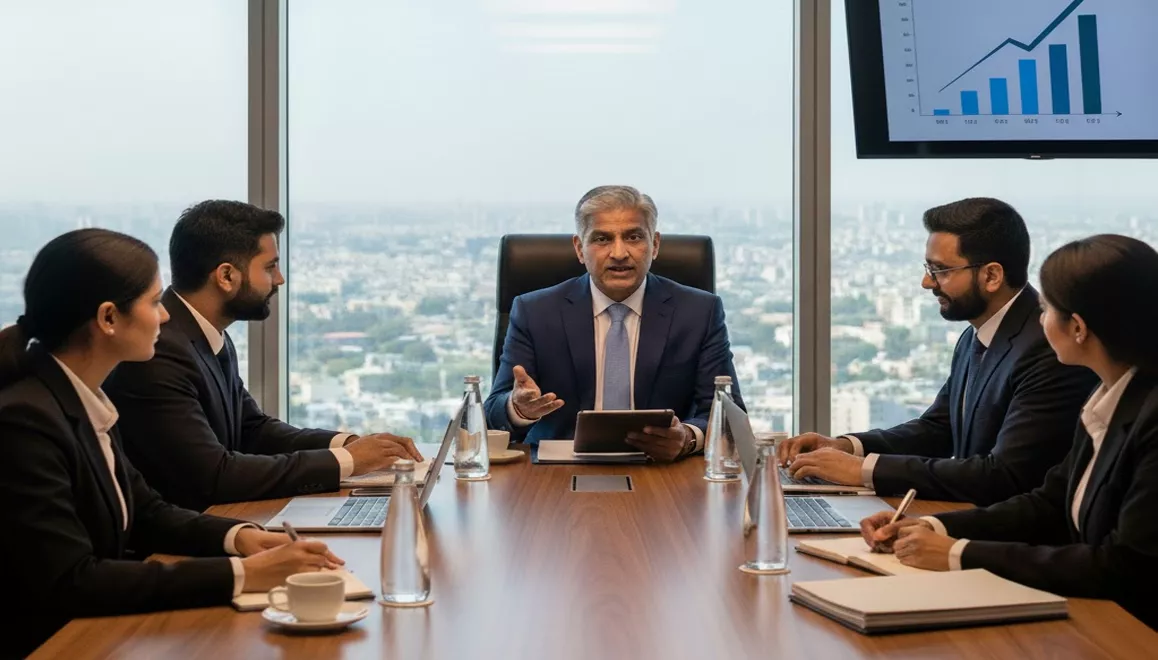A Quiet Revolution by an Ex-Diplomat
Rajesh Kumar, a former Indian Foreign Service officer with 35 years of experience, sat across from a dubious CEO in the busy halls of a company headquarters in New Delhi. Rajesh had just helped India and a Southeast Asian country make a shaky trade deal a few months before, when emotions were high between the two countries. He had nothing but an old leather pad full of handwritten contacts from capitals around the world when he suggested a cross-border cooperation that would treble the company's market share in emerging economies.
The gathering fell hushed as he wove tales of negotiated sanctions and formed alliances, not with bravado, but with the careful art of trust-building that only decades of diplomacy could forge. At the end of the meeting, handshakes finalized a $50 million deal.
Rajesh's story isn't made up, it's a guide for how retired Indian government officials shift from being diplomats to business engines, using their diplomatic skills to help businesses grow. This short story sums up everything we talked about: how the wealth of knowledge that retired diplomats have in international relations, economic diplomacy, and cross-cultural negotiations can be a valuable resource for businesses looking to grow globally.
In a time of trade conflicts and complicated supply chains, these experienced specialists are more than simply counselors, they are also drivers of long-term prosperity.
The Diplomatic Edge: From Boardrooms to Embassy Halls
In the high-stakes world of commercial development, where a single misunderstood gesture or missed regulatory detail may make or break a contract, retired Indian government officials are invaluable partners. Their decades of diplomacy aren't things of the past, they are the tools that businesses need to grow around the world.
Imagine this: A new MBA might look at market estimates and calculate the statistics, but an ex-diplomat like Rajesh can read between the lines of international relations to see how they could throw a supply chain off course overnight.
Economic diplomacy, which is a big part of their jobs, leads directly to business success. These experts have spent years building up relationships between two countries, from negotiating free trade agreements to settling tariff disputes. This knowledge is worth its weight in gold in India, whose exports climbed by 9.83% from July 2024 to July 2025, reaching $37.2 billion in the latter month.
For example, companies that want to do business in ASEAN or Africa can get a lot of help from their networks. A retired official who used to host trade delegations in Brussels may now help EU partnerships that regular sales teams can't reach.
It's not just about who you know, it's the soft power of diplomatic skills that makes them stand out. Cross-cultural negotiation, a daily ritual in diplomacy, helps them to bridge divisions in varied stakeholder ecosystems.
Retired diplomats are great at scenario planning because they can use real-life situations like the U.S.-China trade war or India's Act East Policy. This foresight is very important for strategic alliances, because it helps avoid costly mistakes. Research on post-diplomatic careers in 2024 found that former diplomats generally head programs that help people become more resilient, which helps companies in unstable fields like IT and renewables adapt. In India, where overall this kind of proactive leadership can speed up market penetration by years.
A report from 2024 about life after the Foreign Service talks about how retired diplomats find happiness and businesses find success in jobs that combine global leadership with new ideas. In India, where women diplomats like Rao have broken through glass ceilings, their stories inspire a new wave of gender-diverse leadership in corporate development.
Why Businesses Can't Afford to Miss Out on This Talent Pool
India wants to have a $5 trillion economy by 2027, and the need for people with both diplomatic and business skills will grow quickly. Companies that are dealing with geopolitical concerns, like problems in the Red Sea or the effects of the U.S. election, need more than just data analysts. They need people who can navigate the complicated world of international trade.
Hiring retired Indian government workers isn't about being nice, it's a smart strategy to get a long-term competitive edge. Their CRM skills (customer relationship management, reinterpreted via diplomatic glasses) keep customers coming back in B2B environments. Their new way of structuring deals, which came from high-pressure summits, is what drives digital revolution in global supply chains. Their dedication to ethical governance, which they learned while working in public service, fits perfectly with the ESG (Environmental, Social, Governance) rules that are becoming more popular in boardrooms.
But there are still problems to solve. To close the cultural divide between the public and private sectors, tailored onboarding may be needed, such as through mentorship programs that focus on auto-delivery metrics and collaborative tools.
But what about the ROI?
Exponential. Companies who hire ex-diplomats say they get more min_faves in stakeholder engagement and min_replies in negotiation results. These are like real-world successes in a metric-driven business world.
Charting the Future
It's not a trend that diplomacy and corporate development are coming together, it's the way things are going. There are many chances for people who know how to take advantage of this goldmine as India's trade deficit gets smaller, down 33.58% in 2023 from previous years.
It's time for businesses to look for this talent pool. Hire former government officials on Afsir to serve on advisory boards, put them on global growth teams, or start special economic diplomacy units.
Decades of diplomacy aren't coming to an end, they are becoming the foundation of the economic empires of the future. Are you ready to mine this gold? The messengers are waiting.


